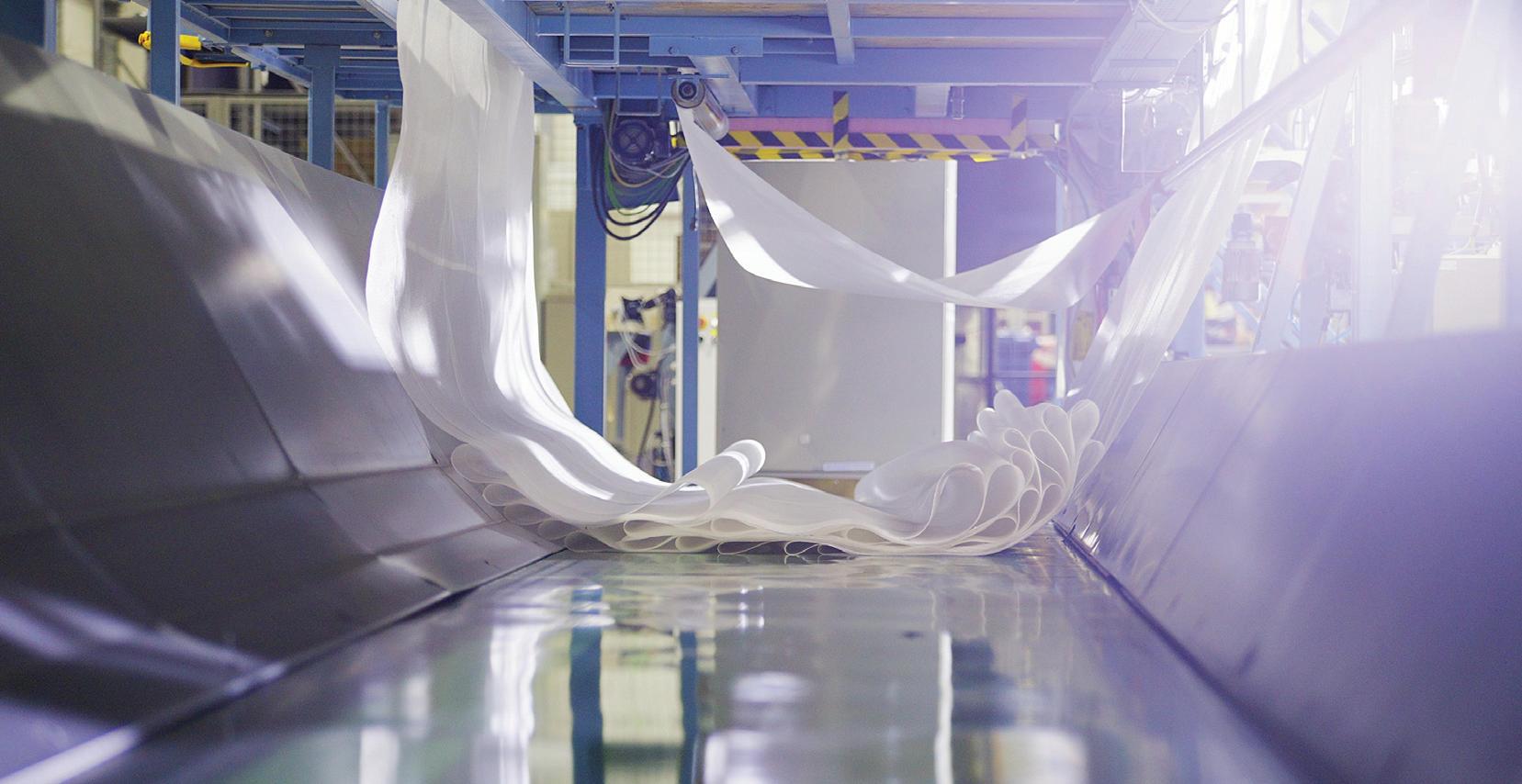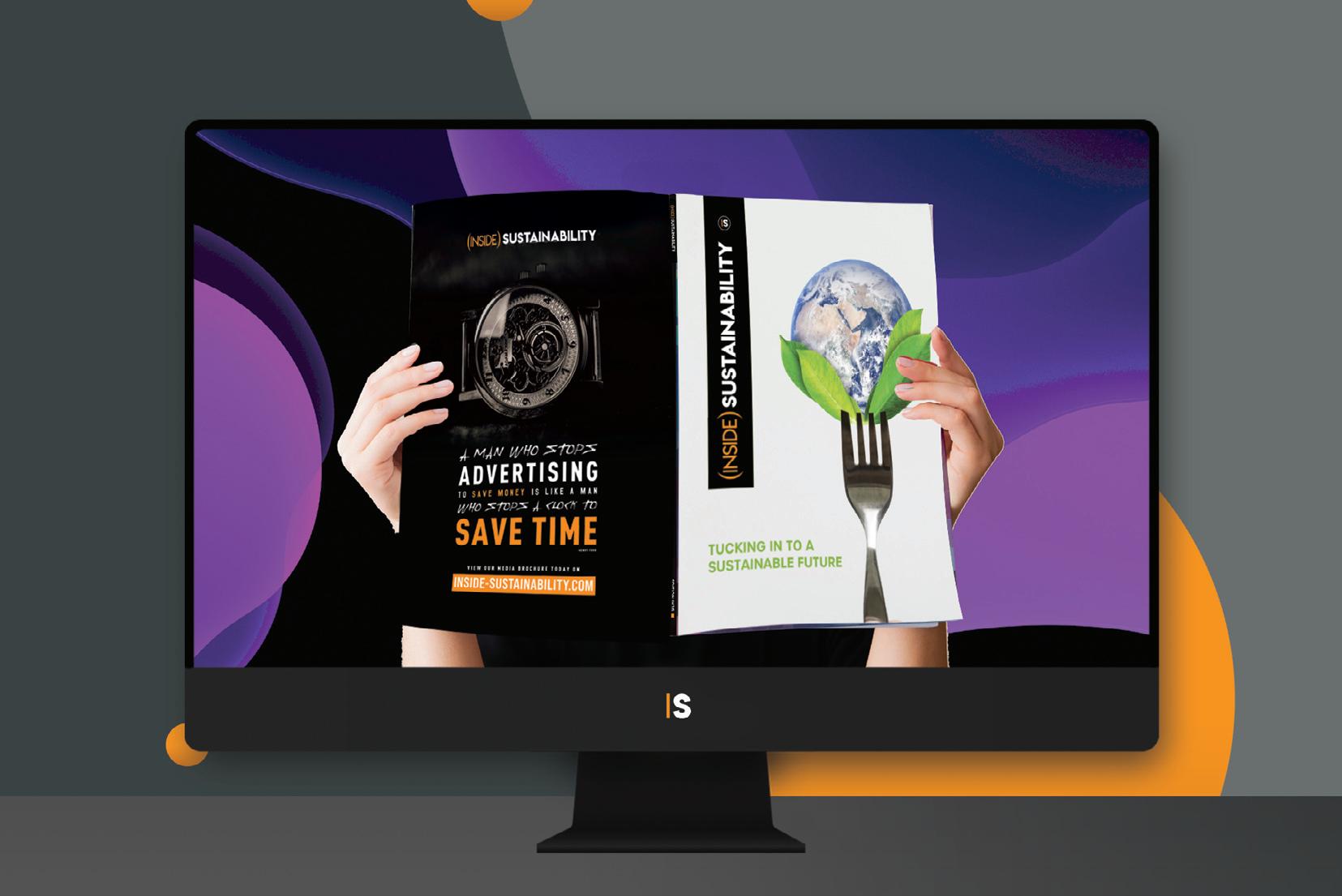


AstenJohnson has a rich history within the paper industry as a global textile manufacturer. With the acquisition of Eagle Nonwovens and Foss Manufacturing, the company continues to diversify and strengthen its reputation in the speciality fabrics industry. Global Sustainability Manager Anaëlle Roemans and Global Marketing Manager Daniel Hédou discussed this evolution, as well as the company’s goals for sustainability, in conversation with Imogen Ward.

IN1999, AstenJohnson formed from the deeply embedded roots of two varied companies with mutual goals. Dating back to 1790, JWI Group brought world class expertise in wire works and drainage equipment. Similarly, Asten, founded in 1882, entered the merger with world class knowledge in dryer fabrics. This wealth of experience would prove to be fundamental for maintaining AstenJohnson’s leadership in the market.
“In 2014, we entered the nonwovens market with the acquisition of Eagle Nonwovens and soon after, in 2017, of Foss Manufacturing,” Global Marketing Manager Daniel Hédou said. “Those additions demonstrated dynamic organic growth and have lead to our expansion with a new nonwoven greenfield site in Waco, Texas.”

In 2022, AstenJohnson announced the creation of a new division: AJ Nonwovens. AJ Nonwovens combines Eagle Nonwovens

ASTENJOHNSON I PROFILE
in St. Louis, Missouri, Foss Performance Materials in Hampton, New Hampshire, and the new Waco site as one division.
Working united, AstenJohnson has maintained its place in the market by diversifying its specialties.
Diversity in products
With its relentless focus on innovation, AstenJohnson offers a broad and differentiated catalogue of products, all of which directly impact end-users’ consumption of energy and resources.
The AccuFlowTM S2/E2 Press Fabric (exclusive to AstenJohnson) brilliantly exemplifies the company’s endless abilities. The product’s unique single-seam configuration and highly sophisticated base fabric construction is comprised of two layered modules angled upon each other. This structure increases robustness
and durability, which translates to higher water removal capacity, reducing energy used to dry the paper, and longer life which lowers landfill use.
AstenJohnson’s innovations create products that last longer, are more efficient and require less energy. In addition, the expert knowledge AJ field associates share with their customers helps improve outcomes from fabric life to the quality of the end product.

Safety focus
To ensure safety across the company, AstenJohnson implemented a Zero Accident Culture (ZAC) safety system. All associates are trained in workplace safety based on 3 core values: accountability, commitment, and trust. Complemented with AstenJohnson’s Lean 6S system, safety and efficiency have improved business processes while reducing the risk of safety incidents occurring.
“We are ahead of the curve when it comes to safety and safety awareness,” Mr Hédou said. “We used to encourage our sites to pursue local strategies. This changed in 2016, when we involved the overall corporate culture to improve the safety of every site. We continue to accelerate the sharing of these practices so that we can reach our goal of zero accidents.”
Implementing Initiatives
Making a difference, AstenJohnson has encouraged its offices worldwide to partake in various green initiatives. Starting in 2021, its office in Eupen, Belgium, has
offered its associates a bicycle leasing programme with different types of bikes available. The office has an impressive bicycle parking lot – featuring solar panelled charging stations for electric bikes and secure bike housing for associate’s peace of mind.
The site in Clinton, South Carolina, has also worked tirelessly to improve its ecooutput. In 2016, the facility set goals to eliminate its air emissions. This was successfully managed a year later and
resulted in the site no longer requiring an air permit.
In China, AstenJohnson Suzhou has implemented a recycling programme for scrap from its monofilament plastic. AstenJohnson sends this waste to a local partner to process the leftover plastic in a pelletiser machine. These plastic pellets are used to produce new items, creating a continuous lifecycle for AstenJohnson scrap material.
AJ Nonwovens in Hampton, New Hampshire, uses a large portion of PET resin from recycled beverage bottles to make the fiber used in their products. Since 2016, AJ Nonwovens has consumed 190 million pounds of resin from bottles.
Setting a sustainable example
As an innovator within the paper & pulp and nonwoven industries, AstenJohnson is determined to lead the improvements needed for a greener future. Looking inward to its business processes, the company works hard to accomplish several sustainability-based goals.

AstenJohnson hopes its efforts will help create a greener planet. “In 2020 we developed the Sustainable Procurement Policy,” Global Sustainability Manager Anaëlle Roemans said. “The next step was to develop a supplier risk assessment, based on their geographical location, the annual spend level, and their business sector. This allows us to assess our
supply chain and ensure that the values of our suppliers match our own.

“Based upon the risk assessment, we communicated with our suppliers our sustainable partner expectations. This is an important step in making our supply chain more sustainable. We really believe sustainable progress should be done through the entire value chain.”
The company recently received the EcoVadis Bronze Medal for the second consecutive year. This award recognises AstenJohnson’s Corporate Social Responsibility (CSR) sustainability performance. EcoVadis uses categories including environment, labour and human rights, ethics, and sustainable procurement in its assessment. After analysing current sustainable policies and actions, AstenJohnson was deemed to be in the top 50% of those within its industry with the most advanced CSR approaches.
AstenJohnson has outlined environmental and social KPIs and aims for a 30% reduction of its CO2 emissions by 2030 compared to 2020 (unit CO2/unit sales) and waste free production by 2030. Those KPIs are fully integrated in the five pillared values of AstenJohnson: safety, excellence, integrity, people and sustainability. Most of the company’s actions towards sustainability relate to these pillars.
“These actions include dedication to our social and environmental KPIs,” said Anaëlle Roemans, “our CO2 emission goals, and our efforts to creating waste-free production processes. This means that we won’t send any waste to landfill or to be incinerated.”
Respect in the workplace
Not only is the company working hard to improve its environmental impact, AstenJohnson is also aiming to exemplify a positive work culture. The company provides ample opportunity for individuals to gain experience and supports associates to progress within the organisation.
Additionally, AstenJohnson is focused on mental wellbeing. “The social side of our company is also really important,” Ms Roemans concluded. “The wellness of associates, ensuring they are fairly compensated, and making sure everyone has equal opportunities is monitored. We are determined to maintain an environment free from discrimination, and we do not want anyone to feel judged. We encourage free thinking – everyone’s voice is important to us.
“We want to highlight this aspect of sustainability within the workplace; too often it is ignored. It is much easier to track a reduction in CO2 than it is to monitor associate’s mental health levels.”
Leaning on the roots formed over 200 years ago, AstenJohnson will continue to monitor and improve business practices, to protect the well-being of its associates, the communities in which it operates, the stability of the company, and its overall impact on the environment. This focus has built a solid foundation for AstenJohnson to achieve short-term sustainability goals, as well as favourable long-term outcomes. n



